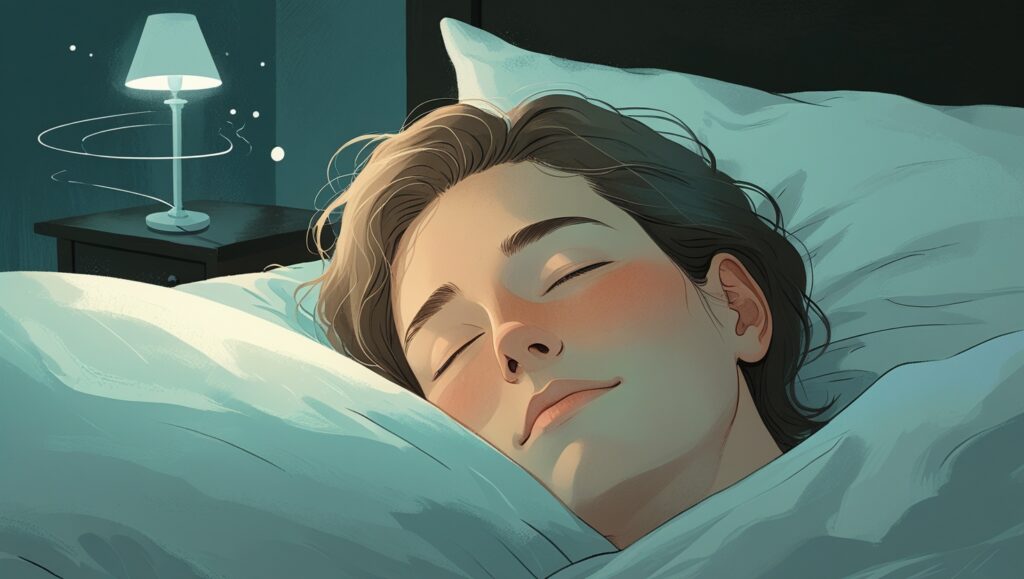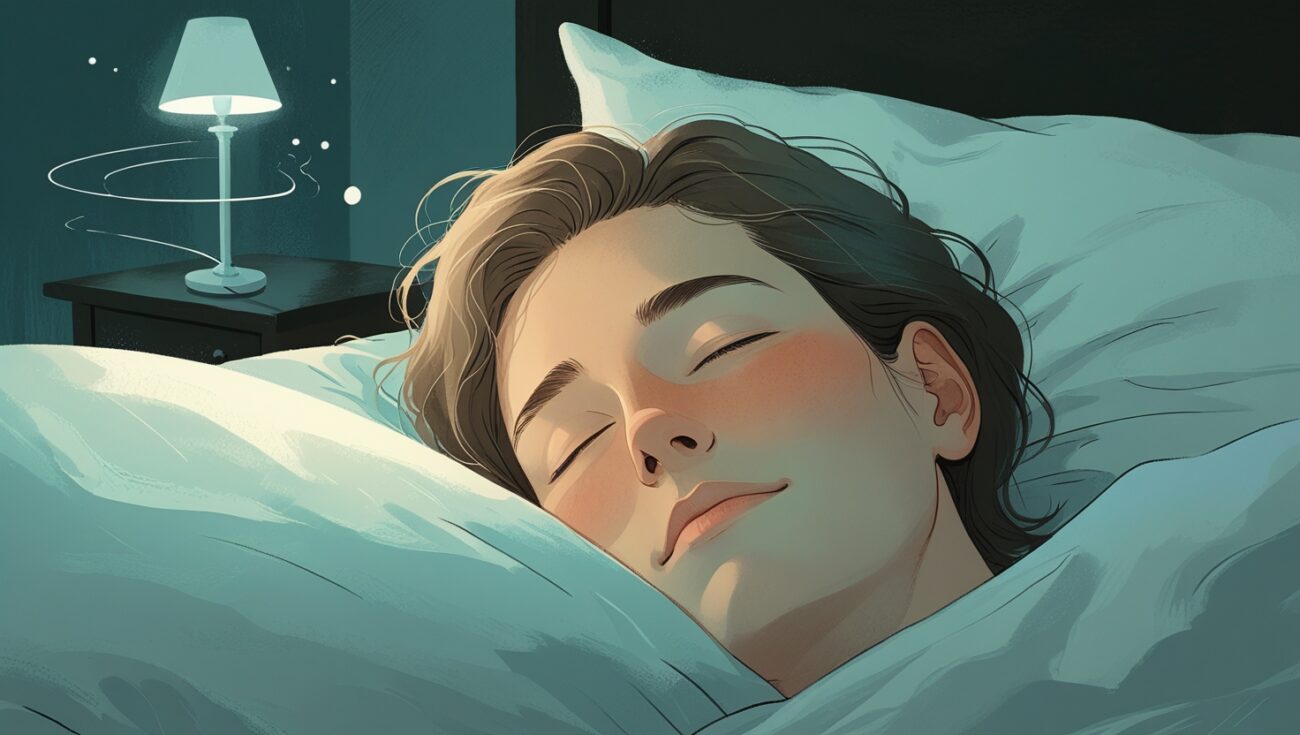How to Sleep Better When You Have Tinnitus
If you’re reading this, chances are you know how exhausting it is to deal with tinnitus at night. That constant ringing or buzzing in the ears can rob you of sleep — night after night — leaving you frustrated, drained, and desperate for relief.
I’ve been there myself. For months, I struggled to get even a few hours of rest because of that relentless noise in my ears. It felt like nothing worked — until I discovered a few powerful tips that finally helped me sleep better with tinnitus.
Today I’m going to share what worked for me — real-world tips you can start using right away. And if you want to take it a step further, I’ll also show you the natural supplement that’s been a game-changer for my tinnitus: Quietum Plus.

Table of Contents
Why Tinnitus Gets Worse at Night
It’s a common complaint: why does tinnitus feel louder at bedtime? There’s a simple reason — during the day, background noise (traffic, conversations, TV) distracts your brain from the ringing. But when the house is quiet at night, your brain tunes in to the sound, making it seem much louder.
Stress and fatigue also play a role — by the time we hit the pillow, our bodies are often more tense and our nervous system more sensitive to the noise. That’s why calming both the body and the mind is key to getting better sleep.
My Best Tips to Sleep Better With Tinnitus
1. Use White Noise or Soothing Sounds
One of the first things I tried — and still use — is a simple white noise machine or app. Adding gentle background noise helps “mask” the tinnitus so it fades into the background.
I love using soft rain sounds or ocean waves — they relax me and take my mind off the ringing.
2. Stick to a Consistent Bedtime
Good sleep hygiene is critical for managing tinnitus. Going to bed and waking up at the same time every day helps regulate your body’s clock and keeps your nervous system more balanced.
I found that even on weekends, keeping a consistent bedtime made a huge difference.
3. Lower Stress in the Evening
Stress and anxiety make tinnitus worse — it’s that simple.
That’s why I always spend at least 10-15 minutes doing something calming in the evening — stretching, deep breathing, or a warm bath. This lowers cortisol (the stress hormone) and helps me drift off more easily.
4. Limit Caffeine and Alcohol
If you want to reduce tinnitus at night, it really helps to cut back on caffeine and alcohol, especially in the afternoon and evening.
I used to love my late afternoon coffee, but once I switched to herbal tea, I noticed my tinnitus was quieter at bedtime. Alcohol can also make ear ringing worse for many people.
5. Support Your Ears Naturally
For me, one of the biggest breakthroughs came when I started supporting my ear and nerve health with natural ingredients.
After trying several supplements, the only one that truly worked for me is Quietum Plus. It’s made with powerful herbs and nutrients that target the root causes of tinnitus.
Within a few weeks of using it, I was sleeping better than I had in months. If you’re looking for extra support, I highly recommend checking it out.
6. Mindset Matters
When I first started struggling with chronic tinnitus, I made one big mistake — I fought the sound, trying to force it away. The harder I fought, the more stressed I became — and the worse my sleep got.
Now, I focus on acceptance and use the tools I mentioned above. I don’t fight the sound anymore — I manage it. And that shift in mindset helps me relax and sleep better.
Final Thoughts
You CAN sleep better, even if you have tinnitus.
When I started adding white noise, keeping a consistent bedtime, managing stress, and using Quietum Plus to support my ears, my nights transformed. I no longer dread going to bed — and you don’t have to either.
If you’re struggling, I encourage you to try these simple tips — and if you want a natural boost, check out Quietum Plus here. It made all the difference for me, and it could for you too.
Here’s to peaceful nights and better sleep ahead!
Another thing I didn’t realize at first is how much neck tension can affect tinnitus. When I started doing simple neck stretches before bed, the ringing in my ears was noticeably lower. If you spend a lot of time on a computer like I do, give this a try.
I also started paying attention to my diet. High-sodium foods, processed snacks, and too much sugar seemed to make my tinnitus symptoms worse at night. I now focus on fresh, whole foods — and it’s really helped my sleep.
Many people don’t realize that dehydration can trigger ear ringing too. I make sure to drink plenty of water throughout the day — but I stop about an hour before bed so I’m not waking up all night. Staying hydrated keeps the tinnitus calmer.
Switching to blue-light-blocking glasses in the evening also helped. The blue light from screens can disrupt melatonin and make it harder to sleep — and that’s bad news for anyone with tinnitus. Reducing blue light really helped me relax at bedtime.
I experimented with my pillow too. Using a supportive pillow that keeps my neck aligned helped reduce neck strain, which in turn seemed to calm the ear ringing a bit.
For me, magnesium was another key. I started taking a magnesium supplement in the evening — it helps relax my muscles and calm my nervous system, making it much easier to fall asleep even when the tinnitus is present.
Another little tip that worked wonders: I started keeping a journal by my bed. Just writing out any worries or to-do lists helped clear my mind. A calmer mind equals better sleep, even with tinnitus.
One surprising thing I learned is that cardio exercise during the day helps too. Just 20-30 minutes of brisk walking or light jogging lowers stress and promotes better sleep quality — and for me, it also reduced the nighttime ringing.
Temperature matters! I noticed that keeping my room slightly cool (around 65-68°F) helped me sleep better with tinnitus. A cool room promotes deeper sleep and helps reduce the body’s stress levels.
One thing that really made a difference was reducing overall screen time. The more time I spent in front of a phone or laptop at night, the louder the ringing seemed to get. Now, I turn off screens at least 30-45 minutes before bed.
Meditation has also helped me tremendously. I’m not a big “meditation” person — but even 5-10 minutes of guided relaxation before bed helped train my brain to ignore the sound and drift off to sleep.
I also tried sound therapy — not just white noise but soft music specifically designed to mask tinnitus frequencies. You can find great playlists online for this, and I use them several times a week.
When my tinnitus was really bad, I’d often wake up in the middle of the night with the ringing blaring in my head. I found that doing a few calming breathing exercises helped me get back to sleep faster.
One thing I always keep in mind is that it’s not just about the ears — your whole nervous system affects tinnitus. That’s why supporting your body with good nutrition, stress reduction, and natural supplements like Quietum Plus is so powerful. Check it out here.
If I had known years ago that simple lifestyle changes could help so much, I wouldn’t have wasted so much time feeling helpless. The truth is — there’s a lot you can do to get your nights back.
A big mindset shift happened when I stopped seeing tinnitus as “the enemy” and started seeing it as something to manage. That made me more calm — and calmer nights lead to better sleep, period.
Lastly — be patient with yourself. Managing tinnitus takes time, but every small improvement matters. I’m living proof that with the right habits, supplements like Quietum Plus, and the right mindset, you can absolutely sleep better — even with tinnitus.


Your articles are very helpful to me. May I request more information? http://www.kayswell.com